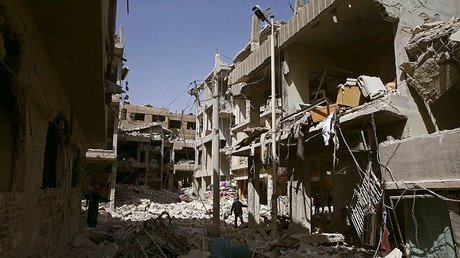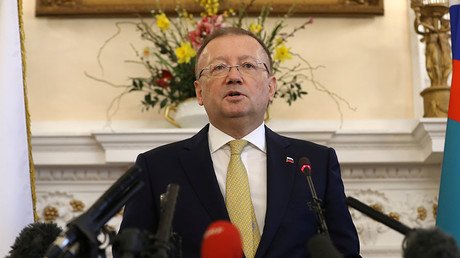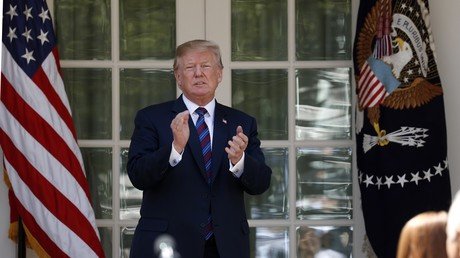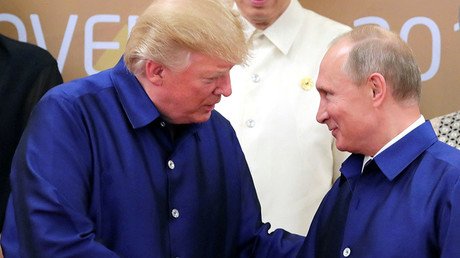Is there a new Cold War? Dutch FM says ‘nyet’ after meeting Russia’s Lavrov
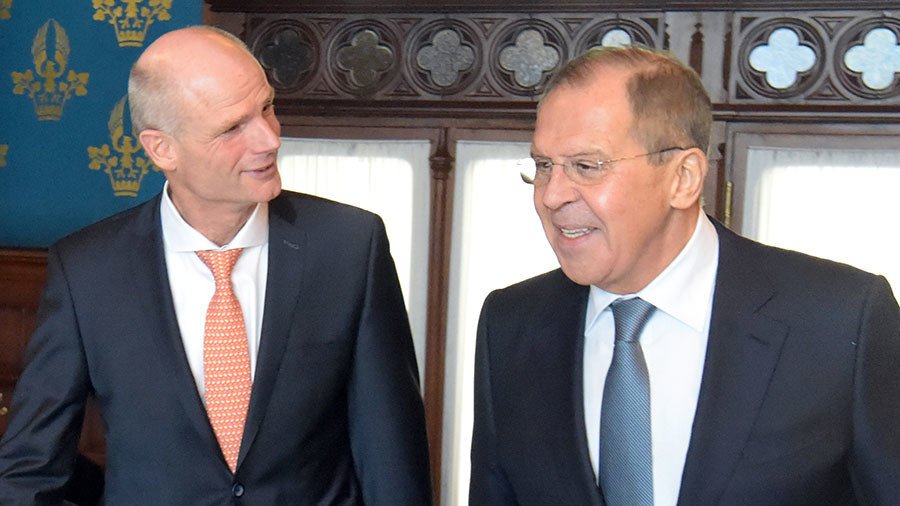
Top Dutch diplomat Stef Blok said there is no new Cold War after meeting his Russian counterpart, Sergey Lavrov. The two also touched upon Syria, the downing of the MH-17, and the Skripal case.
“It’s Friday 13th today and it seemed a good time to visit Moscow,” Blok joked, addressing reporters after Lavrov finished his part of the joint news conference. Both sides seem to have kept the tone light during the talks, despite touching upon issues like the MH-17 tragedy and the spiraling Syrian crisis.
Russia has been blamed in recent years for a seemingly endless list of problems around the world, while much of the Western media has begun to speak about a new Cold War. The Dutch foreign minister said he does not buy into this, though relations between Europe and Russia are indeed going through “difficult times.”
“Those reading the newspapers may think the Cold War is back. I get that question a lot from journalists. If we’ve got our back to each other, we can’t look each other in the eye. So let me once again clearly state side by side, [like] I do with minister Lavrov, that my answer to that question is a plain NYET [Russian for ‘no’],” Blok said.
The Dutch minister stressed that despite existing disagreements, the channels for communication must be kept open in the interests of both the Netherlands and Russia.
As journalists bombarded the two with questions about the 2014 MH-17 crash in eastern Ukraine, the diplomats remind them that all countries should adhere to UN Security Council resolution 2166. The document, calling for impartial investigation into the Boeing tragedy and international cooperation on the mater, was unanimously adopted by the 15-member UN body.
The Malaysian aircraft was downed by a missile in July 2014, and the West blamed the anti-Kiev forces of eastern Ukraine. There have also been claims that the missile system came from Russia. The information provided by Moscow in the course of the investigation was only selectively accepted by the multinational team of investigators, Lavrov said. This is despite Russia providing uncut radar-location data “that cannot be faked or changed” and “clearly” shows the missile did not come from the direction the investigators claimed.
Rapid conclusions should be avoided, as well as attempts to fit everything into a preconceived idea, according to Lavrov. This applies not only to the MH-17 tragedy, but also to the alleged use of chemical weapons in Syria and the UK, the minister stated.
The Syrian government has recently come under fire again as Western leaders, including US President Donald Trump and French President Emmanuel Macron, are accusing it of using chemical weapons in the town of Douma.
While Trump is mulling military options against Syria, Russian specialists on the site of the purported attack have found no evidence to support these claims. Meanwhile, the Organization for Prohibition of Chemical Weapons (OPCW) fact-finding mission will only start its work on the site on Saturday.
Since early March, Moscow has also been blamed for the poisoning of ex-spy Sergei Skripal in Salisbury, UK – again, before the main chemical weapons watchdog said even a word on the matter. On Thursday, the OPCW’s executive summary of its independent findings was made public. The agency confirmed the UK’s findings regarding the type of nerve agent, but provided no evidence to support the claim that Russia was to blame for the attack, which Moscow has repeatedly denied.
Think your friends would be interested? Share this story!
